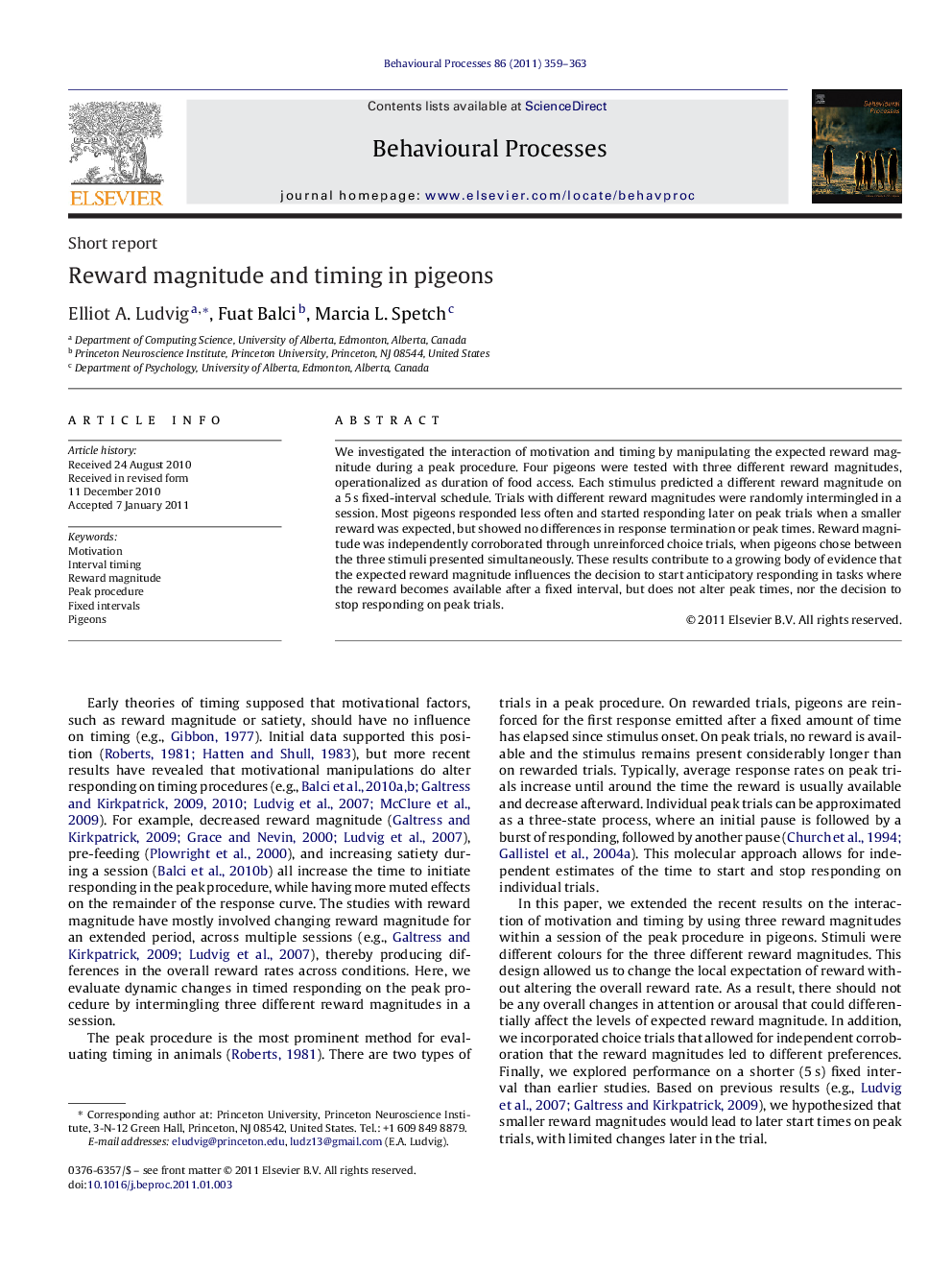| Article ID | Journal | Published Year | Pages | File Type |
|---|---|---|---|---|
| 2427336 | Behavioural Processes | 2011 | 5 Pages |
We investigated the interaction of motivation and timing by manipulating the expected reward magnitude during a peak procedure. Four pigeons were tested with three different reward magnitudes, operationalized as duration of food access. Each stimulus predicted a different reward magnitude on a 5 s fixed-interval schedule. Trials with different reward magnitudes were randomly intermingled in a session. Most pigeons responded less often and started responding later on peak trials when a smaller reward was expected, but showed no differences in response termination or peak times. Reward magnitude was independently corroborated through unreinforced choice trials, when pigeons chose between the three stimuli presented simultaneously. These results contribute to a growing body of evidence that the expected reward magnitude influences the decision to start anticipatory responding in tasks where the reward becomes available after a fixed interval, but does not alter peak times, nor the decision to stop responding on peak trials.
Research highlights▶ Motivational factors influence interval timing in pigeons. ▶ Expecting a larger reward produces more early responding. ▶ Reward magnitude does not alter peak time or post-peak responding. ▶ Reward magnitude mirrors effect of increased tonic dopamine levels on timing.
